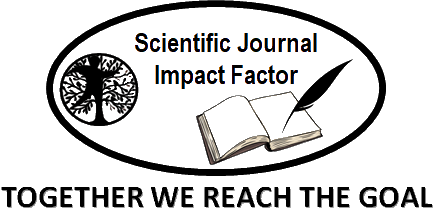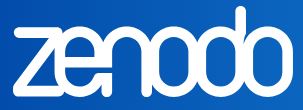Ethics Policy
Innovation and Integrative Research Center Journal (IIRCJ)
(iircj.org)
At the Innovation and Integrative Research Center Journal (IIRCJ), we are deeply committed to upholding the highest standards of ethics and integrity in academic publishing. Our Ethics Policy outlines the responsibilities and expectations for all stakeholders involved in the publication process, including authors, editors, reviewers, and the journal’s editorial board. This policy is aligned with the principles of the Committee on Publication Ethics (COPE) and aims to ensure that all research published in IIRCJ reflects honesty, accuracy, transparency, and respect for academic and professional standards.
1. Guiding Principles of Ethical Publishing
IIRCJ operates based on the following core principles:
- Integrity: Ensuring that the entire publication process, from manuscript submission to final publication, reflects the highest ethical standards.
- Transparency: Promoting openness and accountability in research and publication processes.
- Confidentiality: Protecting the privacy of authors, reviewers, and their work during and after the review process.
- Impartiality: Evaluating manuscripts and making decisions solely based on their scholarly merit, relevance, and quality, without discrimination.
- Accountability: Responding promptly and transparently to ethical concerns or allegations of misconduct.
2. Responsibilities of Stakeholders
2.1. Authors
Authors are expected to adhere to the following ethical responsibilities:
- Originality and Plagiarism:
- Submissions must be original and free from plagiarism.
- Proper acknowledgment and citation of others’ work must be provided.
- Manuscripts must not include fabricated or falsified data.
- Multiple and Redundant Submissions:
- Manuscripts submitted to IIRCJ must not be under consideration by another journal.
- Authors must not submit the same manuscript to multiple journals simultaneously.
- Accurate Authorship:
- Only individuals who have made significant contributions to the research and writing process should be listed as authors.
- Changes to authorship after submission must be approved by all co-authors and the editorial board.
- Conflict of Interest:
- Authors must disclose any financial, institutional, or personal relationships that could influence the research or its interpretation.
- Research Ethics:
- Studies involving human participants or animals must comply with ethical standards and obtain necessary approvals (e.g., IRB or equivalent).
- Informed consent must be obtained from participants, and confidentiality must be maintained.
- Data Transparency:
- Authors should make raw data available upon request and retain it for a reasonable period after publication.
2.2. Reviewers
Reviewers are integral to maintaining the quality and integrity of the publication process. Their responsibilities include:
- Objectivity:
- Reviews must be unbiased and based solely on the scholarly merit of the manuscript.
- Personal criticism of the authors is inappropriate.
- Confidentiality:
- Manuscripts under review must be treated as confidential documents and not shared with others.
- Reviewers must not use unpublished material disclosed in a submitted manuscript for their own research.
- Constructive Feedback:
- Reviews should be constructive, providing detailed and actionable suggestions for improving the manuscript.
- Ethical Oversight:
- Reviewers should report any ethical concerns, such as potential plagiarism, duplication, or ethical violations, to the editorial team.
2.3. Editors
Editors play a pivotal role in ensuring the integrity of the journal’s publication process. Their responsibilities include:
- Fair Decision-Making:
- Manuscripts are evaluated based on their academic merit, without regard to the authors’ personal characteristics, affiliations, or financial status.
- Ethical Oversight:
- Editors must ensure that ethical concerns are addressed promptly and transparently.
- Cases of suspected misconduct (e.g., plagiarism, data falsification) are thoroughly investigated in accordance with COPE guidelines.
- Conflicts of Interest:
- Editors must recuse themselves from handling manuscripts where they have a conflict of interest.
- Transparency:
- Editorial decisions and processes must be clearly documented and communicated to authors.
3. Ethical Compliance
IIRCJ requires that all submissions comply with the following ethical standards:
- Plagiarism Screening:
- All manuscripts are screened for plagiarism using advanced detection tools. Submissions with significant overlap with previously published works will be rejected.
- Human and Animal Research Ethics:
- Authors must provide documentation of ethical approval for research involving human or animal subjects.
- Ethical considerations must be explicitly discussed in the manuscript.
- Disclosure of Conflicts of Interest:
- Authors, reviewers, and editors must disclose any potential conflicts of interest.
- Adherence to International Standards:
- IIRCJ follows international ethical guidelines, including those of COPE and relevant scientific organizations.
4. Addressing Ethical Misconduct
IIRCJ adopts a zero-tolerance policy toward unethical practices. Allegations of misconduct, such as plagiarism, data manipulation, or inappropriate authorship, are handled as follows:
- Initial Investigation:
- The editorial team conducts a preliminary review to assess the validity of the allegations.
- Author Notification:
- The authors are informed of the allegations and given an opportunity to respond.
- Resolution:
- If misconduct is confirmed, actions may include manuscript rejection, retraction of published articles, or notification of the authors’ institution.
- Documentation:
- All investigations and decisions are documented for accountability.
5. Retraction, Correction, and Withdrawal Policy
- Corrections:
- Errors that do not affect the integrity of the research may be corrected through errata or corrigenda.
- Retractions:
- Articles may be retracted for serious ethical violations, with a clear statement explaining the reasons for retraction.
- Withdrawal:
- Authors may request withdrawal of their manuscript before publication, subject to editorial approval.
6. Regular Review of Ethics Policy
To ensure alignment with global standards and evolving ethical practices, IIRCJ periodically reviews and updates its Ethics Policy.
For questions or concerns about ethical issues or this policy, please contact us at editorial@iircj.org.
Through this Ethics Policy, IIRCJ strives to maintain the trust of authors, reviewers, and readers by fostering a culture of integrity, transparency, and accountability in academic publishing.










